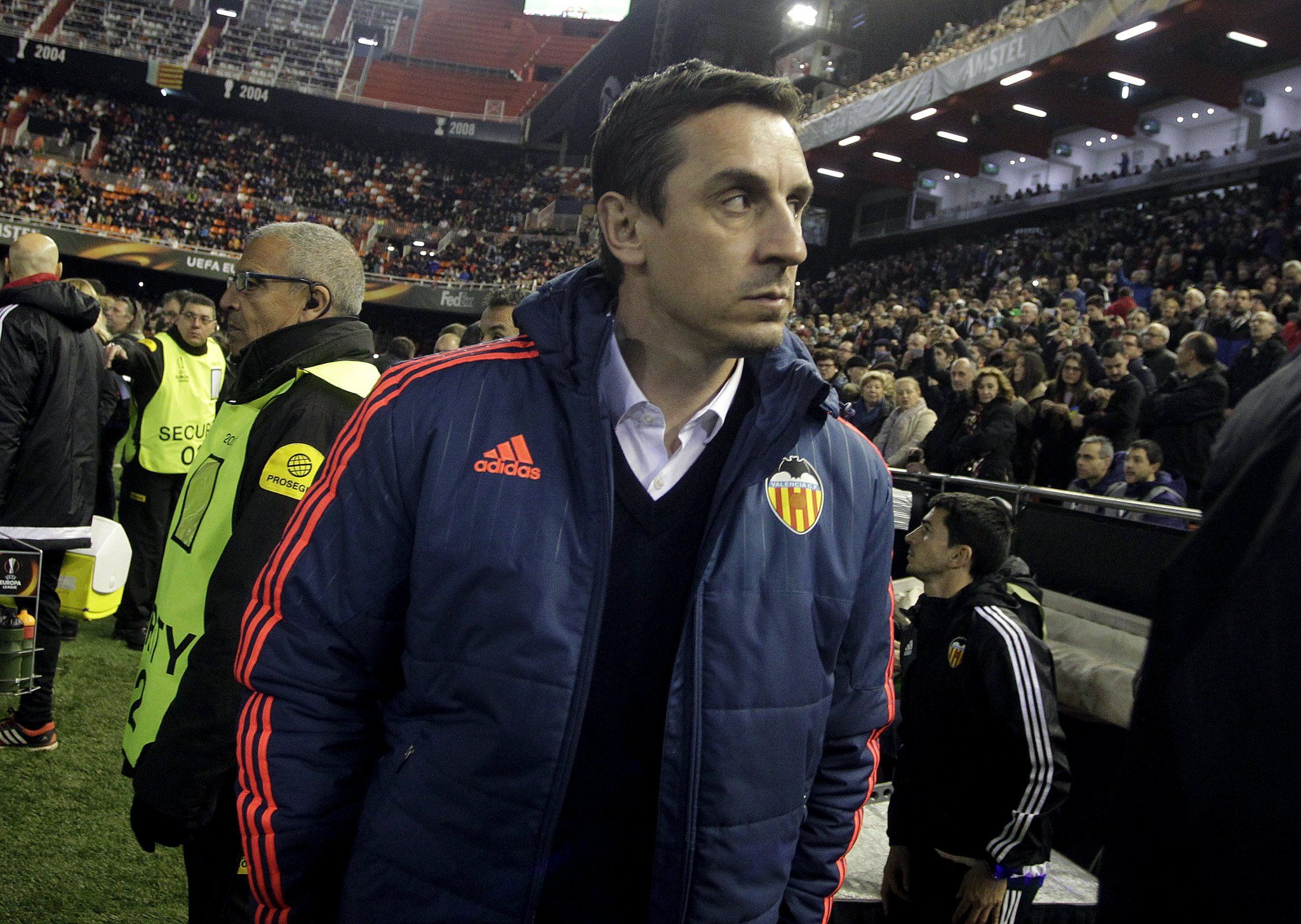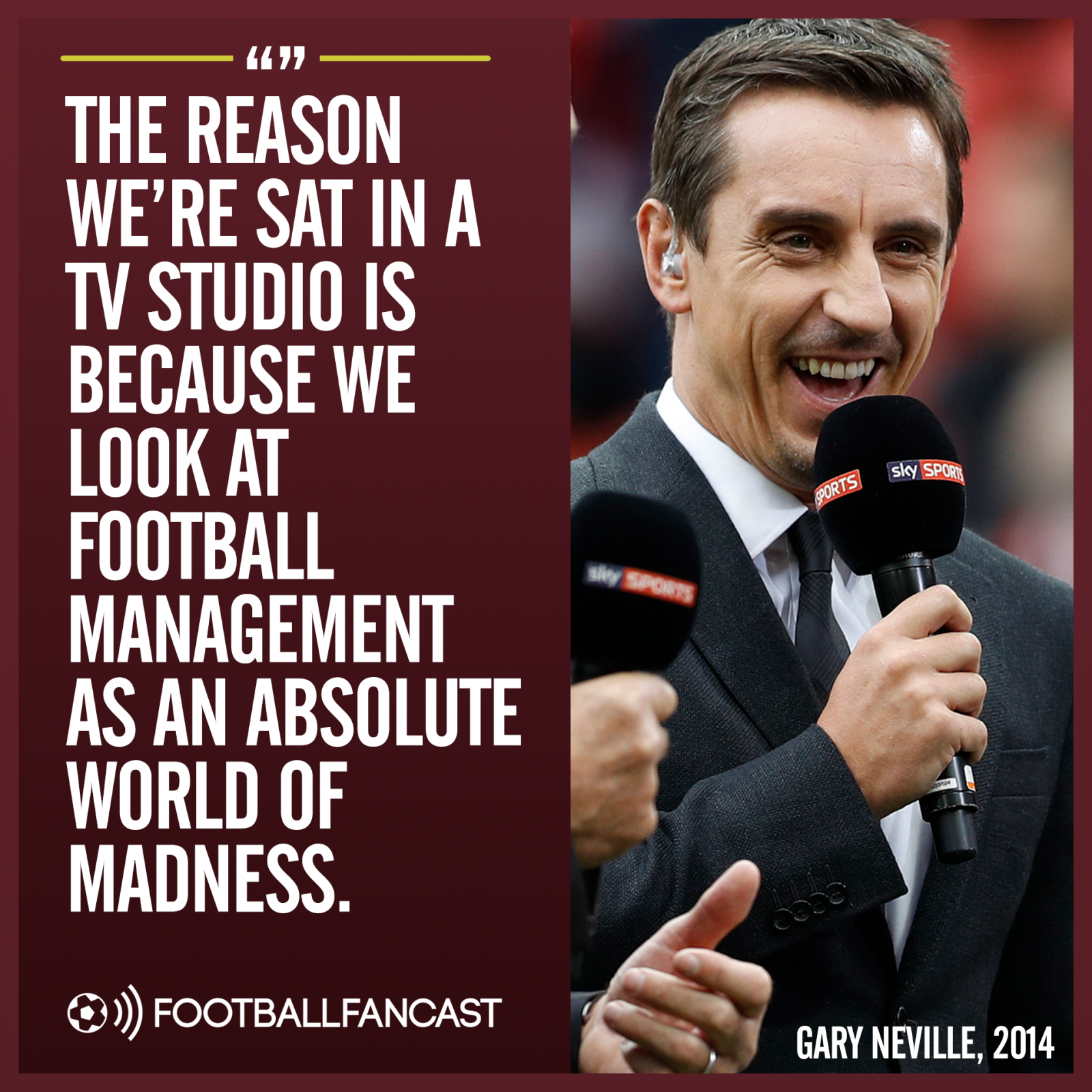When people wonder why English football no longer creates top-class managers, they're asking the wrong question. The right one is far more pragmatic but also far simpler; what English player would want to put themselves through that ordeal?
Football has somehow reached a point where the job security of players is exponentially greater than those who bark instructions at them and this season alone, there have been 31 sackings in the top four divisions of English football. That's almost as many sackings as Championship matchdays and equates to almost exactly one sacking per three Football League or Premier League clubs.
Compare that to the world of punditry, where some - Mark Lawrenson, Alan Hansen and Graeme Souness, for example - have held down jobs for decades, where their lives aren't dominated by the ecstasy of victory and despair of defeat, where rainy, ill-fated nights on the touchline are traded for plush sofas and debonair suits, where you get paid to criticise rather than be criticised. If you're an England great coming to the end of your career, the next step is an incredibly easy choice to make. The uneasiest part of a pundit's job is trawling through the barrage of abuse they might get on Twitter, which is a voluntary form of torture anyway, and there are now more pundits on our screens than ever - the opportunities in that field are only getting larger.
That's precisely the point Gary Neville made, albeit in less words, when discussing the state of Premier League management upon David Moyes' dismissal in 2014 after just nine hellish months at Manchester United. Few would argue it was a mistake to sack Sir Alex Ferguson's successor, appointed by the great Scot himself, but if a manager who consistently proved his qualities during a decade with Everton couldn't even earn a full season at Old Trafford, what chance would someone like Neville with virtually no managerial experience whatsoever have? Three or four games in and they could be gone already.
Of course, that's almost exactly what happened when Neville was put in temporary charge of Valencia, a dream job that was thwart with obstacles. He endured a disappointing spell of just ten wins in 28 games, including a nine-game winless run in La Liga, and relentless wrath from embittered fans before parting company and returning to the safe, comfortable, criticism-free realm of the Sky Sports studio. He claimed he wouldn't be taken seriously as a pundit if he'd turned the job down, but the consequential concern is how seriously he can now be taken as a manager such is the hyperbolic stasis of the trade.
And yet, there is little questioning Neville's talents and suitability to the job. The Manchester United legend is living proof that you can still become a top-class player without an abundance of natural talent if you're smart enough and work hard enough, and that is what shines through during every whiteboard session on Sky Sports - the level of intelligence but also industriousness that goes into his analyses. It's a phenomenal skill to not only understand football at that level and be so informative, but also to communicate his knowledge in such a concise and perspicuous way. It's not hard to imagine Neville delivering the same lessons in the same way to a whole squad of players on Monday morning, reflecting upon the weekend's performance.
In fact, Neville has all the makings of being one of the the saviours of English management, if not the experience. That's no disrespect to the likes of Sean Dyche and Eddie Howe, who have done things the hard way, but Neville is such a delicate combination of achievement at the highest level and understanding of life at a major club, but also the knowledge and working appetite gained from not being the most talented member of the team. World-class players often struggle to accept standards lower than theirs when they become managers, but Neville has seen both sides of the coin - the gifted personalities you need to control, and the players you can develop into something more. He's worked under one of the greatest managers of all time too, and has endured as much success with United as failure with England.
While Neville would be a great loss to punditry, he'd be an even greater loss to English football if one ill-fated spell at Valencia, complicated by a language barrier and a misshapen squad, and the comforts of the studio deterred him from re-entering the management realm. That doesn't just apply to Neville either; Frank Lampard, Rio Ferdinand, Paul Scholes and Neville's partner in crime Jamie Carragher all have fantastic footballing minds, but thus far they've only been dedicated to the world of analysis.
Yet, the only reason for that situation to change is one of the aforementioned names deciding they don't want the easy life - they want to be a part of the relentless, hyperbolic turmoil the beautiful game eternally provides and on top of that, they want the pressure of being the scapegoat whenever things start to go wrong. Perhaps in a few years, when they rediscover their lust for competitiveness, we will see them turn their hands to management. Right now though, as punditry becomes the most obvious route for retiring greats, that scenario is becoming harder and harder to conceive.



